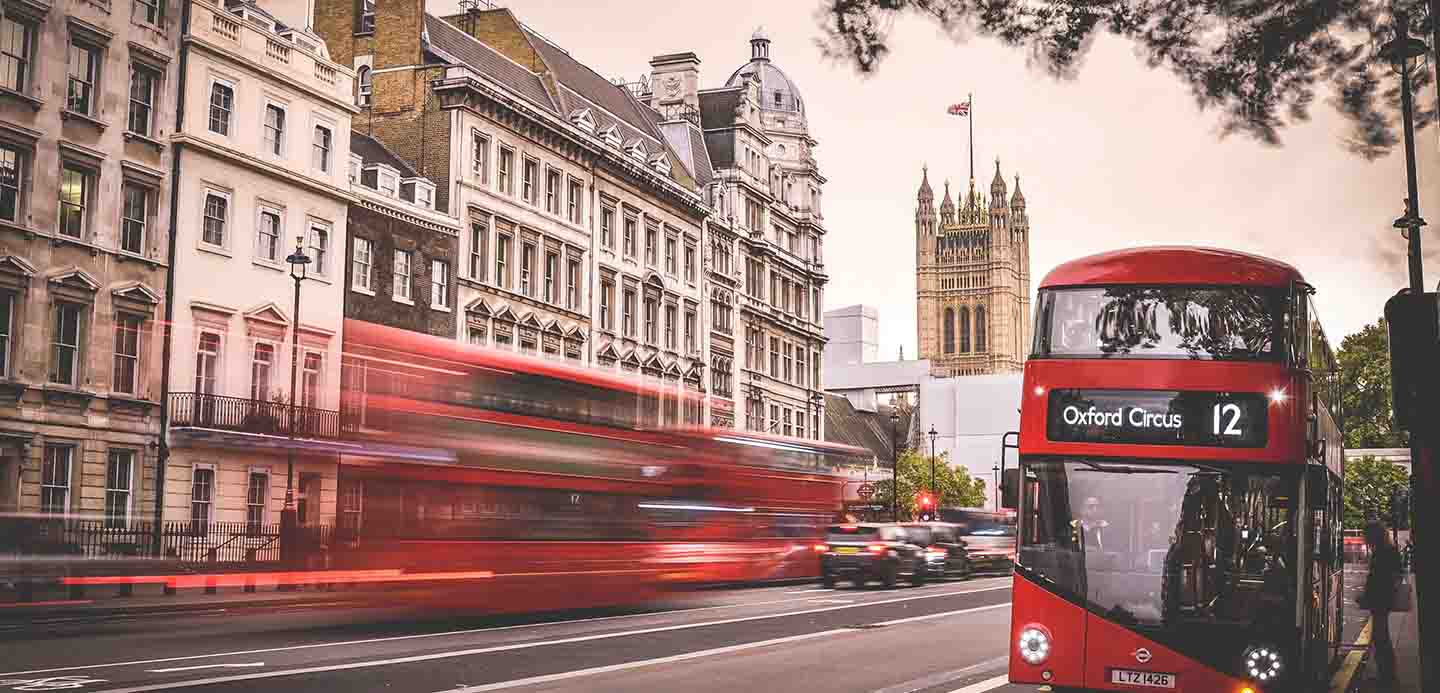- 4 mins
- Article

- Sustainability
- General Sustainability
- Understanding ESG
How Rock Road is bringing its innovative funding model to the UK’s electric bus market
Rock has a mission to bring its innovative funding model to the UK bus sector. By collaborating with HSBC UK, it was able to leverage crucial sector expertise to support its sustainability journey.
Key takeaways
- Rock Road has developed a new funding approach to accelerate the UK’s transition to zero emission bus travel
- Its mission is to support bus operators, councils and government in meeting decarbonisation targets while managing an industry shift towards a more regulated transport system
- By partnering with HSBC UK, Rock Road has been able to leverage the bank’s sector expertise and attract further investment
- Rock, in partnership with Aviva, the National Wealth Fund (formerly UK Infrastructure Bank) and HSBC UK, have raised an initial £100m to fund new zero emission buses in London and across the UK
Over recent years, a new generation of electric buses have been taking to the streets of London and, in 2023, the city reached a milestone of more than 1,000 zero emission buses, making it the largest zero emissions fleet in western Europe1. Indeed, with lower CO2 emissions per passenger kilometres than cities such as New York, Sydney and Paris, London is well-placed to help accelerate the UK’s net zero travel ambitions.
But such a transformation requires an innovative approach to both the financing and the provision of bus services. That’s where Rock comes in. A recognised financier of UK rolling stock and now zero emissions buses, it is helping accelerate the decarbonisation of bus fleets by offering a finance solution for operators and local authorities to introduce zero emission buses while minimising capital outlay and reducing ownership risks; electric buses are more capital-intensive than diesel alternatives and have a higher level of ownership risk, including battery performance.
Our approach allows operators to take a shorter-term commitment to the asset, reducing their exposure to risk and impact on their balance sheet.
|
An innovative funding model
Rock Road was launched in 2021 following the success of its sister company, Rock Rail, which has funded more than £4 billion worth of state-of-the-art trains in the UK and Germany. Both companies are part of Rock Group, which aims to transform transport infrastructure across rail and road.
What makes the Rock Road model attractive is its innovative leasing model, which removes the need for bus companies and local authorities to own the bus stock outright. “Rock Road provides a funding structure that allows us to raise finance in the most cost-effective way and spread the costs over the full life of the bus,” says Louis Swindell, Commercial Director, Rock Road. Under a franchising scheme, the financier’s leasing model removes the need for operators to take on the risks associated with owning a 15-20-year asset off the back of a 5–7-year contract. This proposition is also appealing to local authorities, who may be reluctant to buy and maintain electric bus stock themselves and may lack the necessary infrastructure.
“Our approach allows operators to take a shorter-term commitment to the asset, reducing their exposure to risk and impact on their balance sheet,” Swindell explains. “Our asset management team ensures that our buses remain fit for purpose throughout the whole life of the fleet and looks after key risks such as residual value and battery replacement.
“This third-party ownership solution also allows public authorities to accelerate their zero-emission transition by leveraging both private and public capital,” he continues. “Rock deploys patient capital that takes on key ownership risks while ensuring that local authorities retain long-term control over their fleets.”
How HSBC UK is supporting London’s electric bus revolution
Rock Road has big ambitions; its challenge has been how to deliver electric bus fleets at a sufficient scale in the most cost-effective way. “Bus deals tend to be small, relative to rail deals, so it’s hard for them to attract the best value for money capital,” says Swindell. “So we approached HSBC UK to help develop a funding platform which can aggregate multiple deals to build to a scale big enough to attract finance from institutional investors,” he explains.
The first deal on Rock Road’s new financing platform was to fund 60 battery-electric buses for the Go-Ahead Group, which has been providing zero-emission buses for Transport for London (TfL) since 20132.
Historically, London has been the only UK city to operate a franchising scheme under which bus operators contract with local authorities to provide their services for a set period3. However, things are starting to shift; with other regions such as Greater Manchester4 and Liverpool City Region now moving towards a similar model. This makes the city a crucial proving ground for the rollout of EV buses across the UK.
“Around one quarter of the UK’s buses operate in London, which means the city plays a key role in decarbonising bus fleets and reaching net zero,” says Swindell. “London is an important indicator of how electric buses can be funded under this system. As well as implementing our funding model here, we hope to fund new buses all over the UK in the coming years,” he adds.
Rock Road is on an exciting journey to expand the UK’s electric bus market and accelerate the transition to net zero travel. HSBC UK has been a key partner in that process. “Working with HSBC UK gave us access to a range of different teams from across the bank, which was extremely valuable,” says Swindell. “Everyone we worked with was of the highest standard and really great to work with,” he adds.
Today we finance a number of industries that significantly contribute to greenhouse gas emissions. We have a strategy to help our customers to reduce their emissions and to reduce our own. Find out more: https://www.hsbc.com/who-we-are/our-climate-strategy


